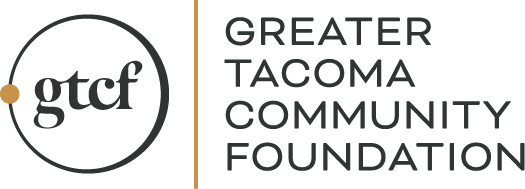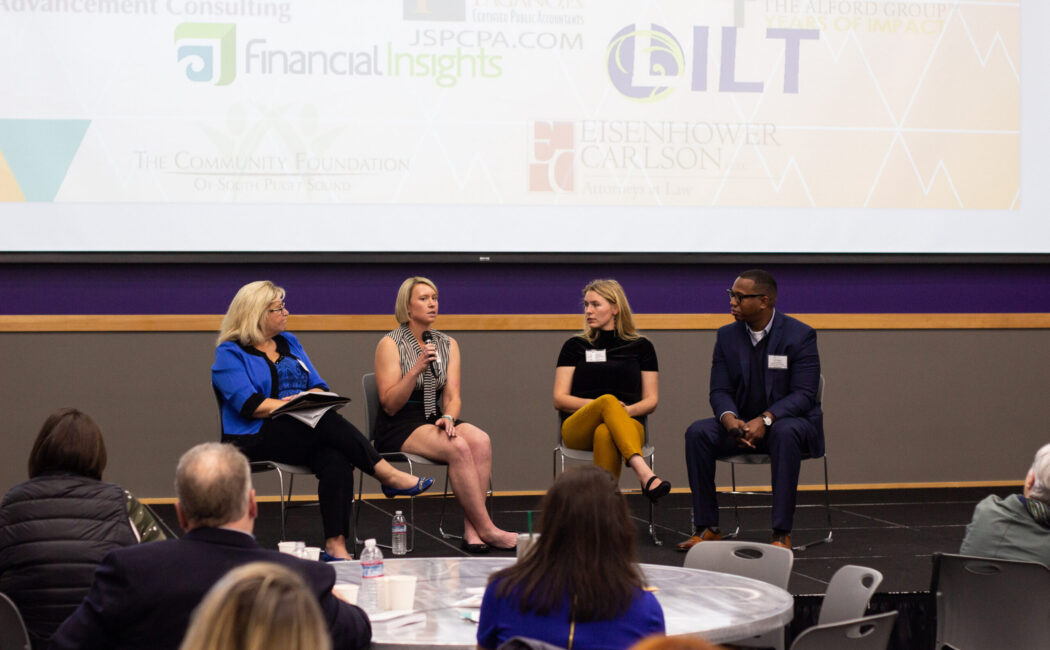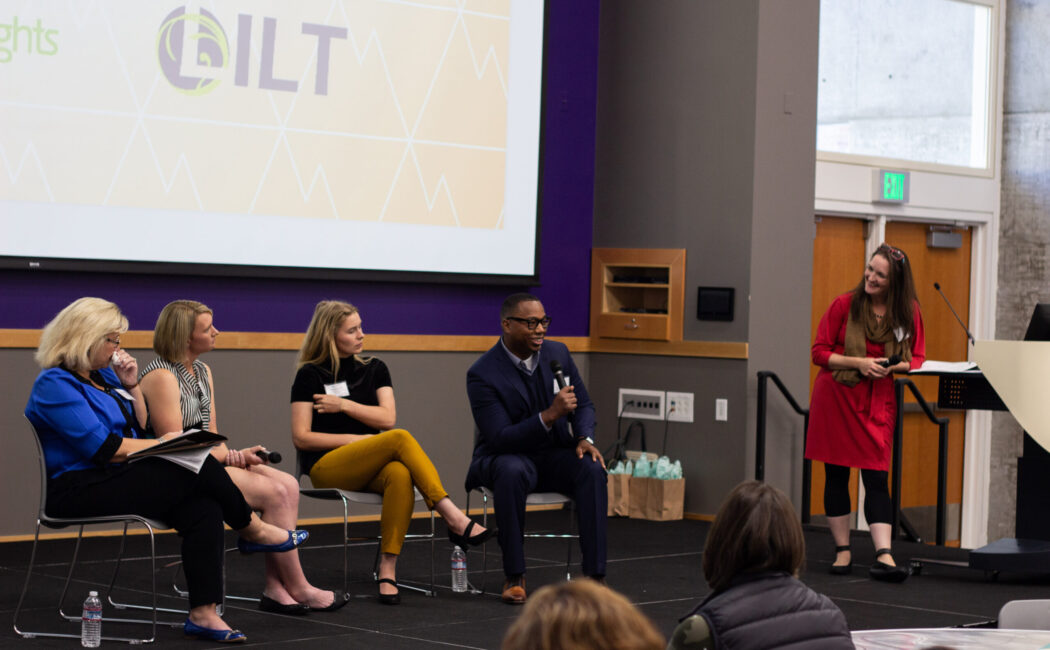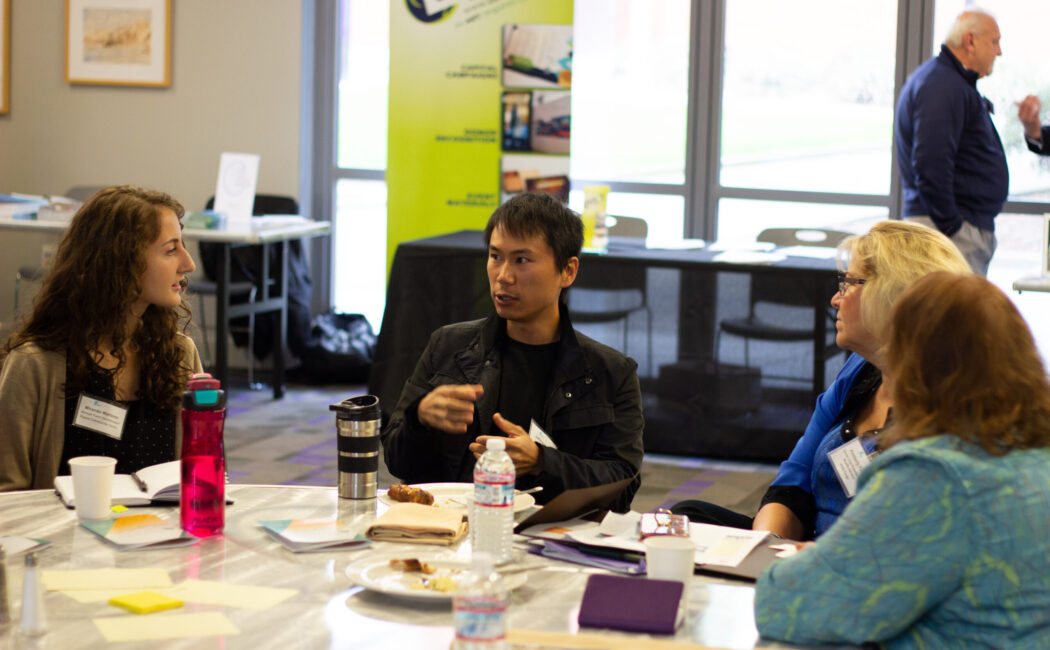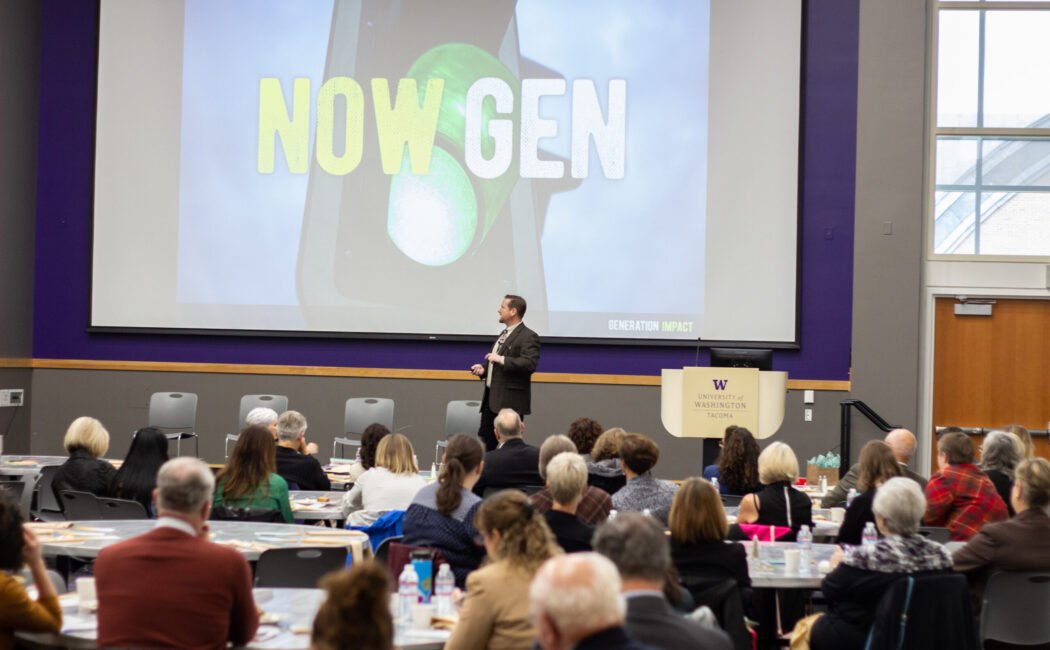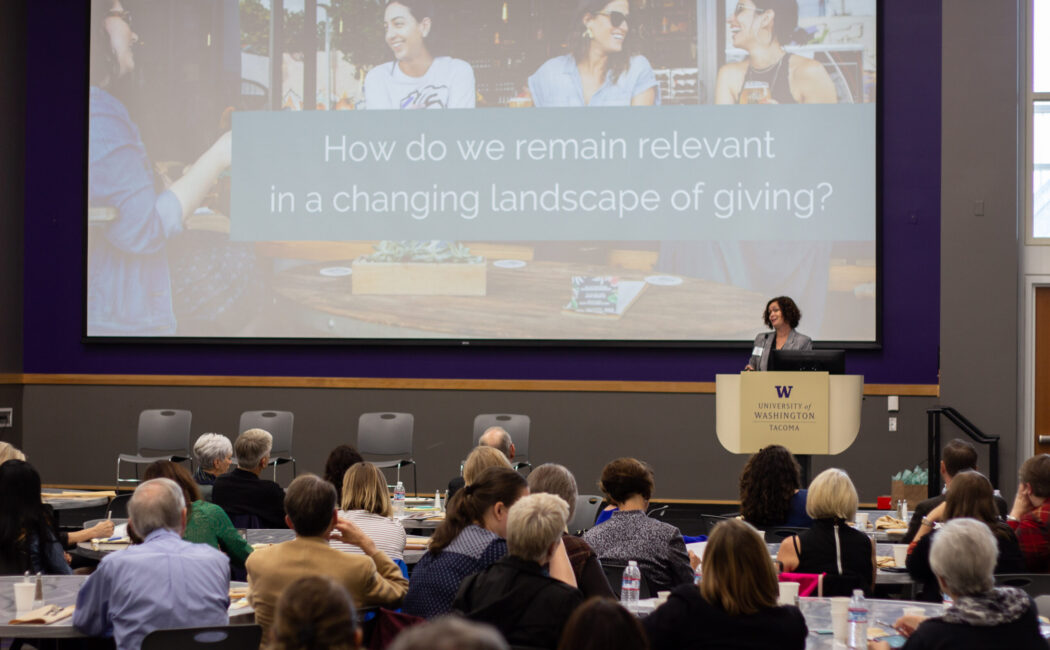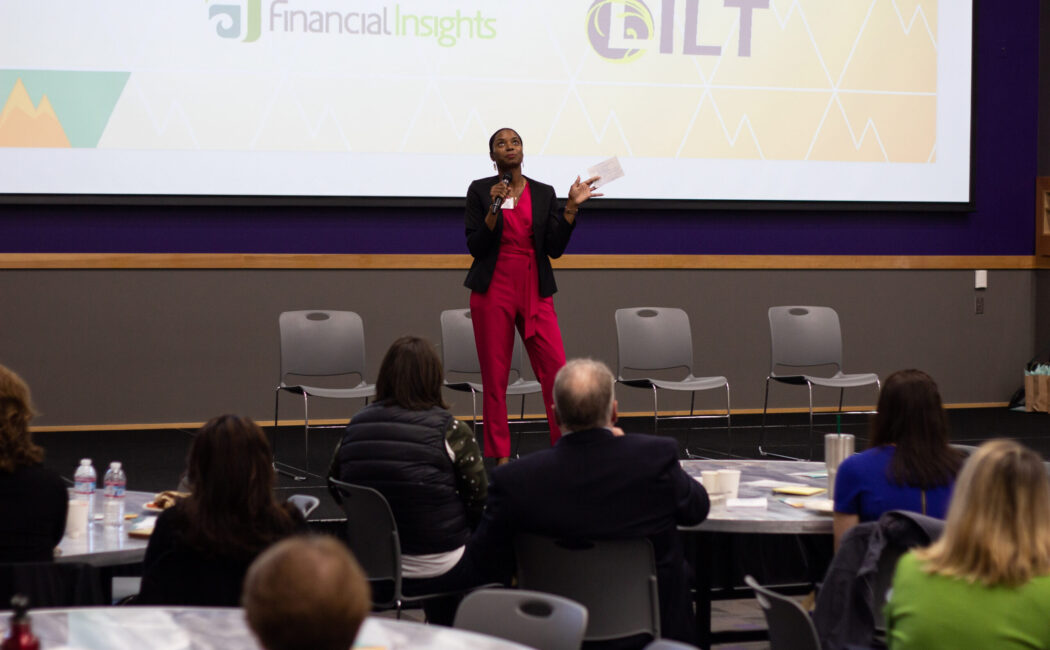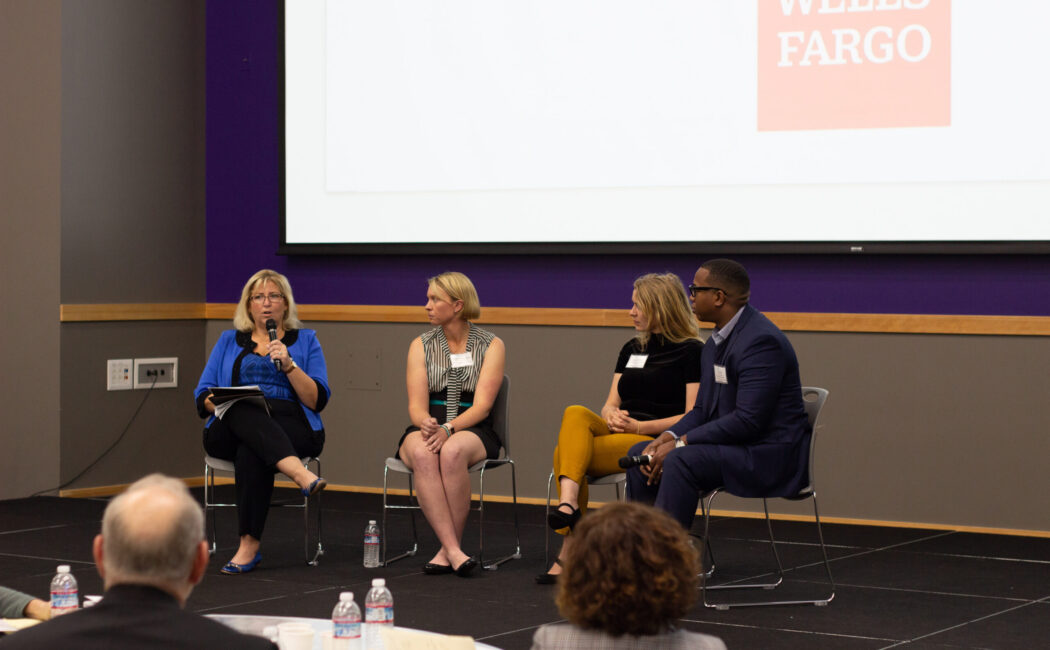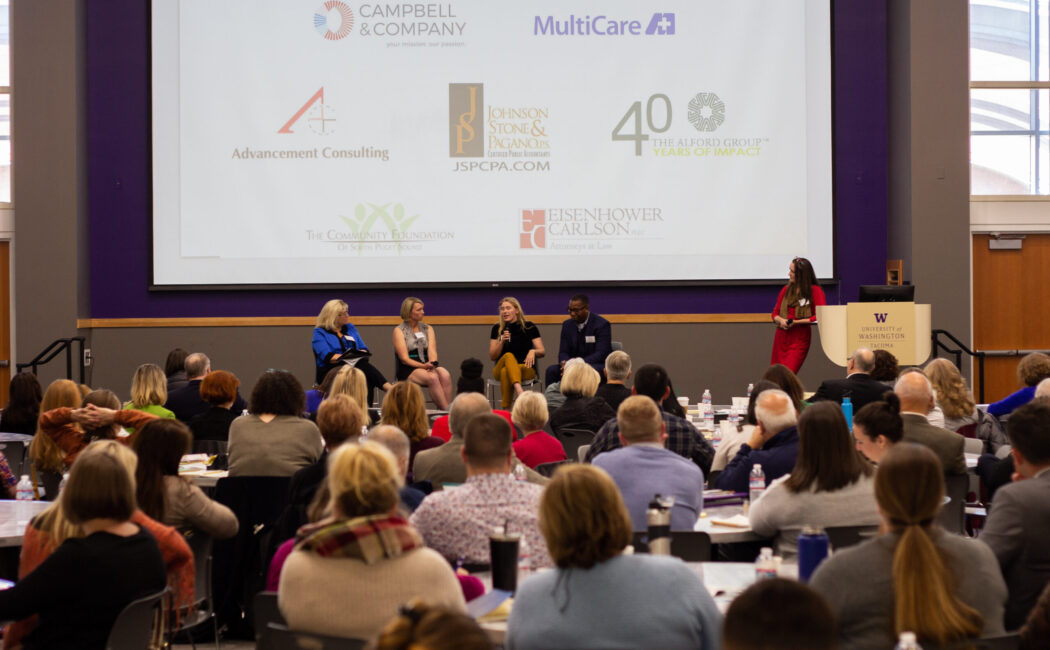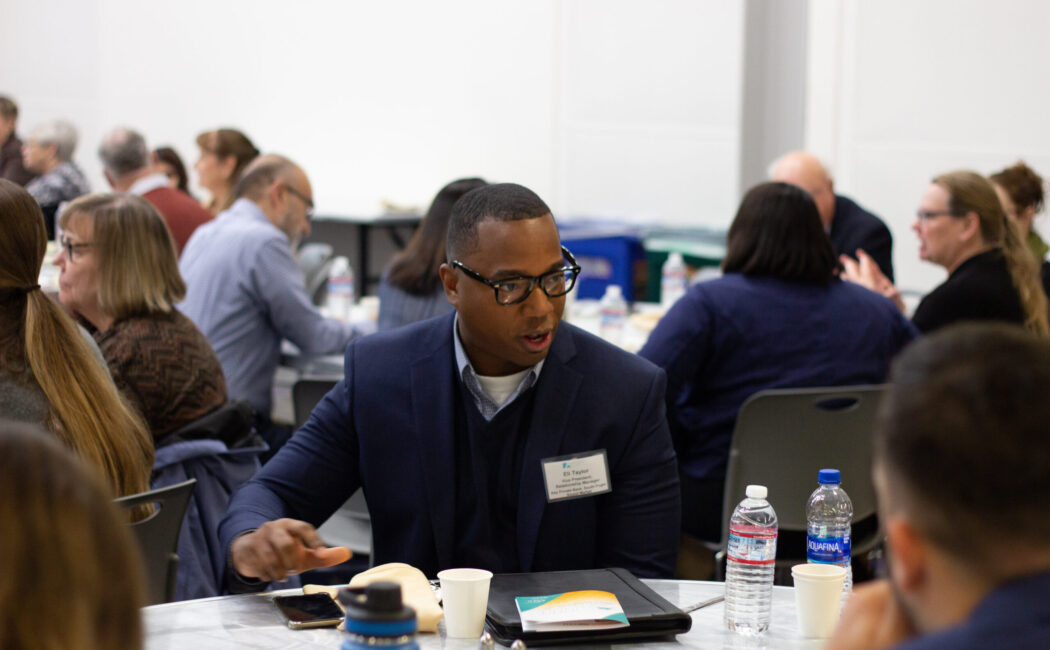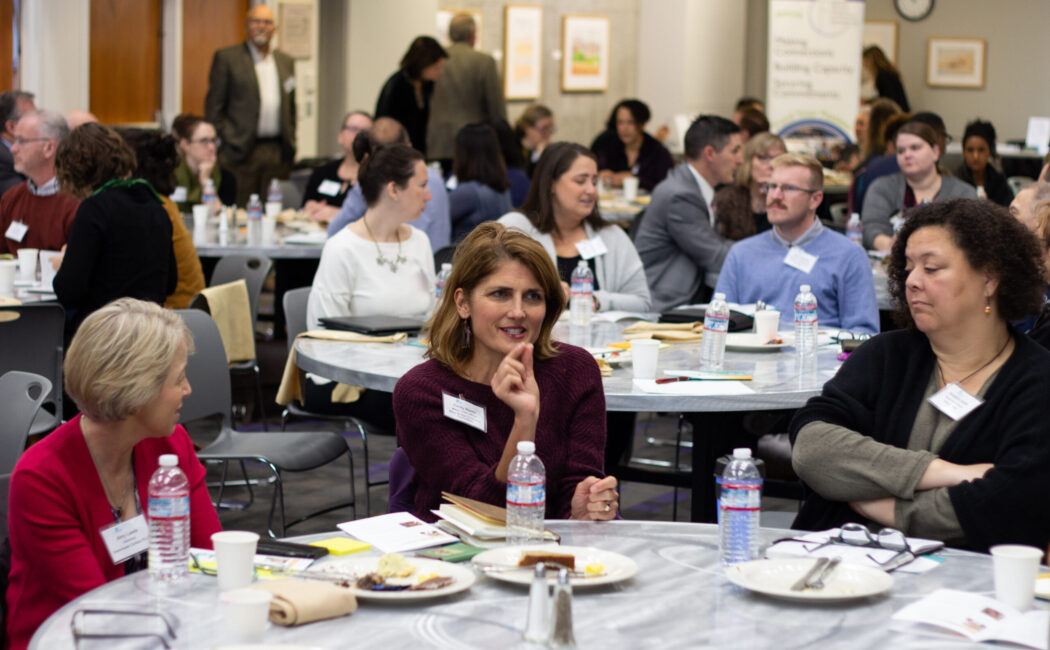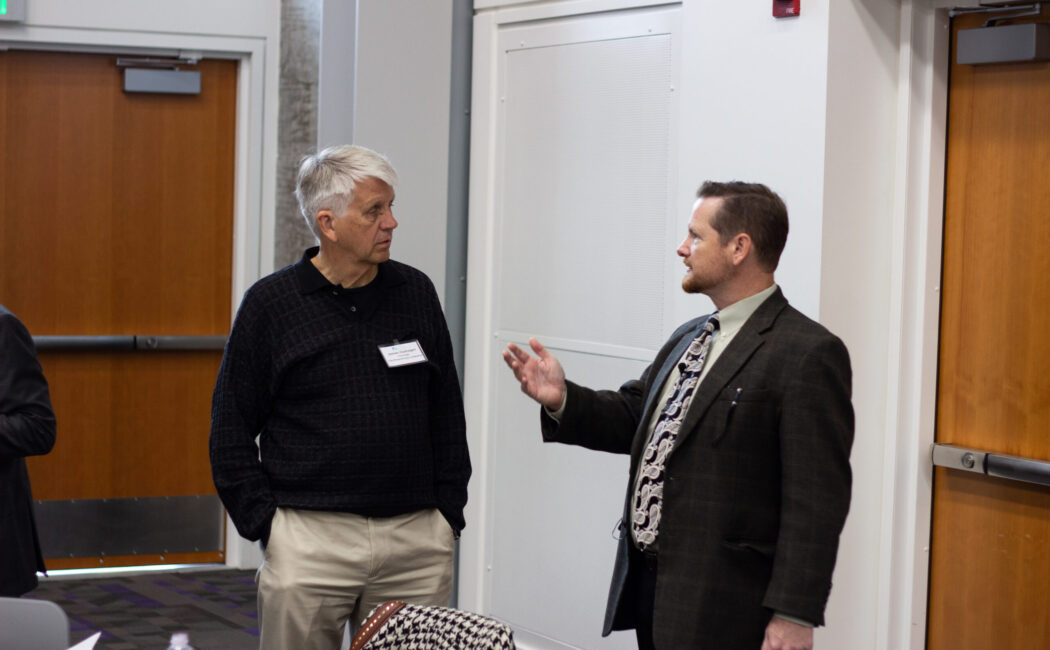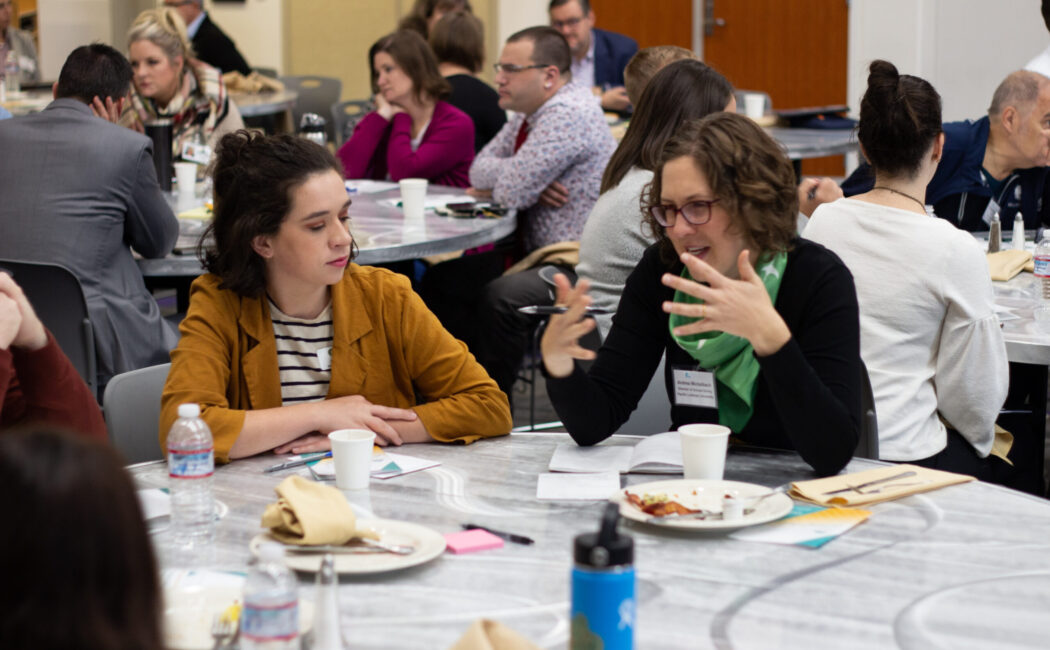
Community
9
2019
7 Big Ideas From Next Gen Philanthropists
Kristen Corning Bedford compares the evolution of philanthropy to a bee hive, “The old model was to woo the queen bee … the future is wooing the hive.” Her metaphor emphasizes the importance of principles of solidarity, agency, and reciprocity in order for philanthropy to disrupt the status quo and create real change.
“as next gen donors step into their philanthropic roles…they want to disrupt the traditional world of charitable giving and want to do so now, not after they retire to a life of philanthropic leisure.”
Author of A Generous Heart: Changing the World Through Feminist Philanthropy, and former Vice President of Community Philanthropy at GTCF, Kristen was one of three keynote speakers on Next Generation Philanthropy at the South Sound Philanthropy Summit on September 27, 2019. Hosted by two volunteer-led organizations, AFP South Sound and South Sound Planned Giving Council, the Summit explored how philanthropy is changing as younger generations bring different styles and perspectives to the work.
Dr. Michael Moody, co-author of Generation Impact, shared insights from his research on Gen X and Millennial philanthropists, who he says will be the most significant donors ever. Based on interviews with rising philanthropists across the country, Michael discovered, “as next gen donors step into their philanthropic roles…they want to disrupt the traditional world of charitable giving and want to do so now, not after they retire to a life of philanthropic leisure.” For organizations who want to partner with this next generation, it’s important to understand how to engage, nurture, and encourage these next gen donors as they reshape giving and community service.
“When we’re getting involved in these boards and nonprofit organizations we’re looking to our peers and asking what they think, who they’ve worked with and who they know we can trust.”
Tacoma Urban League President and CEO, T’wina Nobles, spoke to the audience of more than 100 development professionals, allied professionals, professional advisers, and philanthropists. A member of the “next generation” herself, T’wina shared her experiences building authentic relationships with donors. Offering real-life examples of connecting mission and fundraising across generations, she encouraged people to think big and be ready when donors ask for greater engagement with their organizations.
The Summit wrapped up with a panel offering insights from Next Generation philanthropists. Kim Fisher, Senior VP and Wealth Advisor at Wells Fargo Private Bank, shared her lessons from a program that brought different generations of philanthropic families together. Jordan Beckingham, a 3rd generation member of the Ben B. Cheney Foundation family, talked about carrying on her grandfather’s values while learning from more recent philanthropic approaches to supporting community. Eli Taylor, VP and Relationship Manager at Key Private Bank, shared his experiences serving as a board member for local nonprofits and what he looks for when choosing organizations to support. Emily Schell, a member of the 2018-2019 GTCF Youth Philanthropy Board, talked about the importance of including people with lived experience of the issues in efforts to address those issues.
Seven important ideas emerged from the way younger generations approach philanthropy and serving the community:
- Desire for Meaningful Experiences
“They’re more of the ‘lean-in’ generation. They want to get their hands dirty. The ways we’re seeing that is they’ll raise their hand and say let’s have a separate NextGen meeting outside of the regular board meeting and we’ll tell you what the topics are that we want to talk about. They want to learn and research and figure out how they can engage in more impactful ways.” - Being Heard
“Having a seat at the table, but also having a voice at that table is very important for us as Millenials. It has to be dialogue though, it has to be conversational. It can’t just be yes/no questions because if it is then we feel you’re just checking a box and you’re not really into us and what we have to say.” - Understanding of the ‘Why’
“The why is so important for us. I need to know why you do what you do and why you serve the people you serve because I need to be able to explain my “why” for giving time away from my family and my kids whenever I’m serving.” - ‘Try Before You Buy’ Opportunities
“We are skeptical. We don’t have a lot of money, some of us, so we want to know how that money is being used. The best way for me to come and see how an organization is allocating their assets is to go and join and serve and see where that money is going. If its tangible for me and I can touch and see the folks we’re connecting with and giving assets to, then I can believe in what the mission and purpose of the organization is and I’m more apt to give financially when its time.” - Representation
“If I went to an organization that serves inner-city communities and the board was made up of eight individuals who were all over-40, White professionals I would probably not be interested in serving on that board because I don’t think my voice would be heard and you’re showing me that you’re not really interested in engaging the community. The board and the organization’s staff has to reflect the community it’s serving. That is very important” - Learning Opportunities
“I go to conferences, try to be involved in the community and get education from others, and I’m also in a Chartered Advisor in Philanthropy course. So, just pushing myself in getting the education I can, so I can share it back with family members and help figure out how we can change or innovate with what we’re doing.” - Influencers
“If a nonprofit is just posting an event on social media without anyone in my sphere of influence posting or re-sharing it then I won’t pay attention to it. But, if it’s someone that I know, that cares about what I care about, then I’ll probably show up if I know they are going to be there as well.”
The South Sound Philanthropy Summit highlighted many differences in the ways generations think and act when it comes to philanthropy, but one critical aspect remains the same as ever: the importance of building authentic relationships.
RESOURCES
Association of Fundraising Professionals South Sound
South Sound Planned Giving Council
Generation Impact: How Next Gen Donors are Revolutionizing Giving
A Generous Heart: Changing the World Through Feminist Philanthropy
